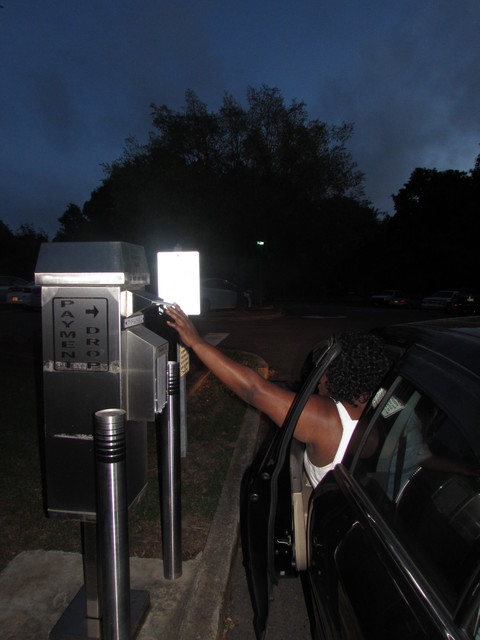LAURINBURG — The Laurinburg City Council promised on Tuesday night to work with city residents faced with a dramatic spike in their latest electric bills.
When assessing customers’ July usage, officials said the city read meters more than a week later than usual, ultimately billing city residents — used to paying for around 30 days of electricity at a time — for up to 39 days worth of power.
“We had people in training and someone on vacation, so there’s a six-to-seven day bigger read in there than normal,” Mayor Tommy Parker told a group of residents who questioned the higher bills at Tuesday’s meeting.
“That will correct itself because you’ve got to have a short month, because there are only 365 days a year.”
Among the five people to protest the unusually long billing period was Wayne Gibson, who said that his bill, usually below $300, was $770 for the month of July.
Willie Campbell’s bill also doubled, from $180 to $360. Campbell told city council that, as a single grandmother raising several children, the extra expense came as a hardship.
“Because of the rate hike, especially the light bill, I just don’t know what I’m going to get when I open the mail,” she said. “Please consider, because I will probably be back up there to the city of Laurinburg. I can’t afford to pay all of this, and I don’t know what I’m going to hear from them.”
Rena McNeil pointed out that those living on fixed incomes are ill-prepared to handle paying for a week of power usage that normally would not have been billed for another month. Some have sought energy assistance through the Department of Social Services.
“If we see this same type of situation occur in this coming month, September, then we’re going to have a lot of people in the line that’s pretty much spending about three-fourths of their income to pay a light bill,” she said.
Council discussed potentially setting consistent billing periods of 30 and 31 days so that customers can better prepare to pay their bills.
“What we need to do, as the city, is be sure and guarantee these citizens that 30 days is going to be the max per month,” said Councilmember Curtis Leak. “We’re just going to have to guarantee it, even if we put some money in continuance for the meter readers, we run 30 days.”
Councilmember Dee Hammond suggested that the city should be prepared to pay employees overtime to read the meters on schedule if necessary to avoid a similar situation.
“I do think we need to work with these citizens, and consumer billing knows what people pay every month, so they have a better grasp of how they can work with each individual,” Hammond said.
In other business on Tuesday, the city approved a request by Crime and Drug Committee Chairman Noran Sanford to reduce the board’s membership from 10 to eight, eliminating a county and city seat. That committee’s meetings will also move from the first Monday of each month to the first Thursday of each month, in an effort to reach an attendance quorum at each meeting.
Sanford also presented the committee’s top priorities for the coming year: a gang awareness workshop, consolidating information about low- and no-cost youth services available locally, and and creating a grief response team for families who have lost children to violence and families of law enforcement officers killed in the line of duty.
Mary Katherine Murphy can be reached at 910-506-3169.

